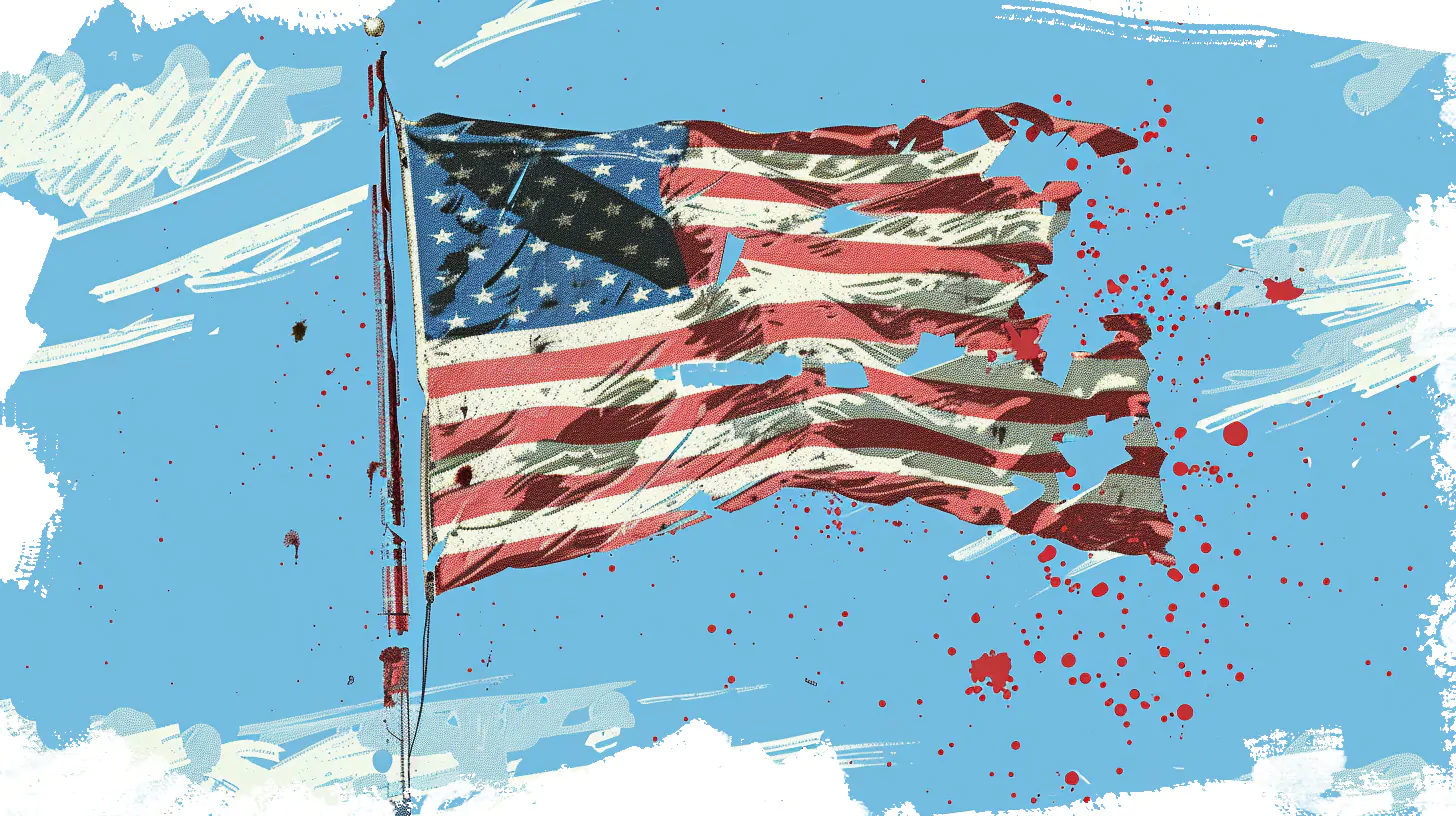To many, the attempted assassination of former president Donald Trump came as a shocker. But such incidents, including deadly ones, seems to be par for the course when it comes to the US political scene. But the ramifications of the most recent attack may be far graver than some may think.
Back in the 18th century, when Americans were fighting for their independence in the political underground, in street fights and on battlefield, there was no such thing as the sanctity of life, let alone property. You would have been encouraged to tar and feather a British loyalist or even stab him to death and chuck away the body. Alternatively, you could dismantle his house.
For all the ostensibly ‘civilised’ traditions of political competition, the United States was founded by extremely tough people at an extremely tough time. That reality helped mould the mindset of present-day Americans. The society birthed by the revolution furnishes an unambiguous resolution to potential moral scruples over whether or not one should resort to violence. The American culture dictates: go ahead and do it as long as you believe you are doing the right thing.
Those traditions have seemingly withstood the test of time. A typical 1850s congressional debate over slavery could lead to Representative Preston Brooks caning Senator Charles Sumner to a pulp and even breaking the thick cane in the end while his fellow assailant was brandishing a revolver to prevent others from coming to Sumner’s aid. Both wound up re-elected.
Considering the climate that hostile, the attempted assassinations of the presidents, both successful and not, come as little surprise. The attacks started with the 1835 botched attempt on President Andrew Jackson’s life where the perpetrator’s pistol misfired.
The assailants’ mistakes as well as the intelligence agencies’ prowess have foiled multiple such attempts. According to various sources, Bill Clinton alone survived up to 30 pre-meditated attacks.
But four presidents were indeed gunned down: Abraham Lincoln (1865), James Garfield (1881), William McKinley (1901) and John F. Kennedy (1963). Besides, presidents Zachary Taylor and Warren Harding were rumoured to have been poisoned. Their respective deaths in 1850 and 1923 looked suspicious enough to question the natural causes.
Others were injured, including Donald Trump, Teddy Roosevelt (1912) and Ronald Reagan (1981). Notably, the incident involving the then-former president Roosevelt boosted his re-election bid. The bullet hit him in the chest, but was slowed down by the hefty 50-page speech the candidate had crammed into his jacket pocket.
Being an avid hunter, Teddy Roosevelt was knowledgeable enough to dismiss the injury as minor, even though the public saw it way differently. Undeterred by the bleeding wound, Roosevelt went on with his stump speech for almost an hour.
Although his unwavering reaction to the attack helped him rack up more votes, it did not translate into the subsequent 1912 election win. Roosevelt was tripped up by his ill-advised political strategy where he had been running as an independent candidate, which led to a split in the GOP vote and handed victory to the Democratic challenger. Trump never made that mistake, though.
The Standoff
However, it can be argued that, compared to Teddy Roosevelt’s situation, Trump is disadvantaged by the current political climate stateside. Even though the Democratic leaders have disavowed and condemned the brazen assassination attempt in no uncertain terms and the Florida judge even dismissed the indictment in an apparent bid to allay the unrest, regular left-wing activists have been saddened by the attack for an entirely different reason.
Whatever the assailant’s identity, motives and possible ties, a lot of the politically active Democratic social media users are openly articulating their wish for Trump to be dead and begrudging the shooter’s near-miss. Some ruthless Democratic supporters appear to be gutted by Trump now being able to cash in on the botched attempt. The FBI has reported a spike in anti-Trump hate-speech statements on social media.
The Trump assassination attempt has further stoked the domestic standoff in the US, and the country may well have inched closer to the brink of a new civil war. Hammering out a compromise proves difficult when one side decries Trump as the new Hitler, whereas their opponents have been led to believe it is now no-holds-barred for the hard left. It is now about winning come what may. Any realpolitik considerations have gone out the window in this showdown duked out by the forces of evil and the legion of light to the tune of Harry Potter vs Lord Voldemort. And it is now increasingly clear to the Trump crowd that there will be no mercy towards them.
This does not mean to say the situation is following the inescapable downward spiral, but calming things down becomes a tougher ask as the tensions flare up time and again. And since the nationwide feud has been brewing for a number of years now, the odds of a fatal mistake are only soaring.

